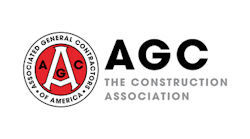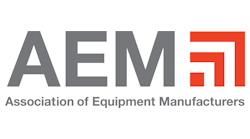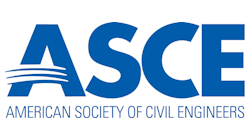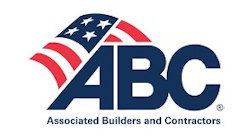At the beginning of October, I wrote the blog titled “Beware the Five Year Prison Sentence” and in the November/December issue of Grading & Excavation Contractor magazine, I wrote Editor’s Comments titled “What’s Yours is Mine?”
The subject matter asked the same question in both: if you buy and own a piece of equipment, do you then have the right to access or alter the software that was built into the machine?
The Digital Millennium Copyright Act (DMCA) of 1998 was originally put in place to keep people from breaking the digital locks on DVDs to make copies and pirate them. More recently the DMCA has allowed vehicle manufacturers, including the ones who make heavy equipment, to keep the embedded software on the vehicles locked and inaccessible to whomever owns the machine.
At the beginning of October, I wrote the blog titled “Beware the Five Year Prison Sentence” and in the November/December issue of Grading & Excavation Contractor magazine, I wrote Editor’s Comments titled “What’s Yours is Mine?” The subject matter asked the same question in both: if you buy and own a piece of equipment, do you then have the right to access or alter the software that was built into the machine? The Digital Millennium Copyright Act (DMCA) of 1998 was originally put in place to keep people from breaking the digital locks on DVDs to make copies and pirate them. More recently the DMCA has allowed vehicle manufacturers, including the ones who make heavy equipment, to keep the embedded software on the vehicles locked and inaccessible to whomever owns the machine. [text_ad] Some equipment owners complained because the DMCA kept them from getting into the software to make their own diagnoses and repairs, which could lead to costly manufacturer services and losing money with machine downtime. Every three years, the DMCA is reviewed, and changes and exemptions can be made. This year is one of those triennial years and changes have been made after the Library of Congress considered recommendations from the Register of Copyrights. One of the proposed exemptions was for vehicle software when it comes to diagnosis, repair, or modification. It would permit the circumvention of the technological protection measures that safeguard the electronic control units and their computer programs. A number of groups were against the exemption, such as the Association of Equipment Manufacturers, John Deere, and General Motors, among others. They argued that an exemption wasn’t necessary because vehicle owners have alternative options, such as manufacturer-authorized repair shops and tools. They also asserted there were serious public health, safety, and environmental concerns if the TPMs were tampered with. In the end, the Librarian adopted the following exemption:Computer programs that are contained in and control the functioning of a motorized land vehicle such as a personal automobile, commercial motor vehicle, or mechanized agricultural vehicle, except for computer programs primarily designed for the control of telematics or entertainment systems for such vehicle, when circumvention is a necessary step undertaken by the authorized owner of the vehicle to allow the diagnosis, repair, or lawful modification of a vehicle function; and where such circumvention does not constitute a violation of applicable law, including without limitation regulations promulgated by the Department of Transportation or the Environmental Protection Agency; and provided, however, that such circumvention is initiated no earlier than 12 months after the effective date of this regulation.In other words, it is now OK for machine/vehicle owners to tinker with the software as long as it doesn’t end up breaking any transportation or environmental laws, effective on October 28, 2016. I’d like to know your thoughts on this. Did the Library of Congress and the Register of Copyrights do the right thing in allowing the exemption to the Digital Millennium Copyright Act of 1998? Does the machine’s software belong exclusively to the manufacturer? Or does the machine owner have rights to the software once they buy the vehicle? What would you consider to be a fair solution? Read the entire Library of Congress’ final rule here.
Some equipment owners complained because the DMCA kept them from getting into the software to make their own diagnoses and repairs, which could lead to costly manufacturer services and losing money with machine downtime.
Every three years, the DMCA is reviewed, and changes and exemptions can be made. This year is one of those triennial years and changes have been made after the Library of Congress considered recommendations from the Register of Copyrights.
One of the proposed exemptions was for vehicle software when it comes to diagnosis, repair, or modification. It would permit the circumvention of the technological protection measures that safeguard the electronic control units and their computer programs.
A number of groups were against the exemption, such as the Association of Equipment Manufacturers, John Deere, and General Motors, among others. They argued that an exemption wasn’t necessary because vehicle owners have alternative options, such as manufacturer-authorized repair shops and tools. They also asserted there were serious public health, safety, and environmental concerns if the TPMs were tampered with.
In the end, the Librarian adopted the following exemption:
Computer programs that are contained in and control the functioning of a motorized land vehicle such as a personal automobile, commercial motor vehicle, or mechanized agricultural vehicle, except for computer programs primarily designed for the control of telematics or entertainment systems for such vehicle, when circumvention is a necessary step undertaken by the authorized owner of the vehicle to allow the diagnosis, repair, or lawful modification of a vehicle function; and where such circumvention does not constitute a violation of applicable law, including without limitation regulations promulgated by the Department of Transportation or the Environmental Protection Agency; and provided, however, that such circumvention is initiated no earlier than 12 months after the effective date of this regulation.
In other words, it is now OK for machine/vehicle owners to tinker with the software as long as it doesn’t end up breaking any transportation or environmental laws, effective on October 28, 2016.
I’d like to know your thoughts on this.
Did the Library of Congress and the Register of Copyrights do the right thing in allowing the exemption to the Digital Millennium Copyright Act of 1998?
Does the machine’s software belong exclusively to the manufacturer?
Or does the machine owner have rights to the software once they buy the vehicle?
What would you consider to be a fair solution?
Read the entire Library of Congress’ final rule here.








